Last week, I discussed why the renewed eviction moratorium imposed by the Centers for Disease Control and Prevention (CDC) on August 3, 2021, is unlawful and ultimately will be struck down by the courts. The Biden administration knows this — but imposed the moratorium anyway — to appease the left wing of the Democratic Party. President Biden justified this exercise in political expediency on the grounds that “the new ban, even if challenged, would at least ‘give some additional time’ for billions in unspent housing relief dollars to reach those in need.” It’s a cynical and outrageous abuse of the rule of law and the consent of the governed, using the courts as a cat’s paw, but only the courts can put a stop to it.
The question now is exactly how long will it take for the courts to strike down the renewed moratorium. The longer it takes the courts to do so, the more the illegal moratorium will have “succeeded” in its aim of buying additional time for non-paying renters at the expense of landlords, the rule of law, and the respect of the citizenry. The case has thus become a battle over whether a stay of the federal court order striking down the moratorium will be lifted or not before the renewed moratorium itself runs out on October 3, 2021.
The first round of this renewed battle ended last Friday when a federal district court in D.C. concluded that, although the renewed moratorium should be ended at once, the court’s “hands were tied” to do so by a previous ruling of the D.C. Circuit Court of Appeals, which is a higher court. The landlord association immediately commenced round two of the battle by filing a motion in the D.C. Circuit on Saturday and asking for an expedited briefing schedule and hearing this week.
I will discuss the district court’s ruling and then offer my thoughts on how the circuit court is likely to decide the case. At the outset, I note that the district judge, Dabney Friedrich, is a bright and able jurist. She is a Trump appointee, but not a political ideologue on the bench; she is a judge who follows the law. Her conclusion that her hands were tied is probably correct, but the D.C. Circuit, as the higher court, will not be bound by the same constraints.
Court Rules Eviction Moratorium Unlawful, Stays Ruling Pending Appeal
Judge Friedrich originally ruled on May 5, 2021, that the CDC lacks authority to impose a rent moratorium under the 1944 public health statute (42 U.S.C. § 264) on which the CDC relied. However, she stayed (postponed the effectiveness of) her ruling while the Government pursued an appeal, so the eviction moratorium remained in place. Because an appeal usually takes at least 6-12 months to be resolved, the landlord association immediately asked the D.C. Circuit to lift the stay, and thereby end the moratorium, while the rest of the appeal proceeded. On June 2, 2021, however, the D.C. Circuit upheld the stay. The actual appeal remains in process to this day in the Court of Appeals.
The stay procedures are important in this case. Under the court rule governing stays (Fed.R.App.P. 8), a party can seek a stay from both the district court and the appellate court, at the same time, or one after the other. And, if a party seeks a stay in the appeals court, that court reviews the issue independently, meaning it does not review the lower court’s stay decision, it makes its own decision. In June, that is what the DC Circuit did; it analyzed the landlord’s request to lift the stay and concluded that a stay was warranted. It did not review whether Judge Friedrich made the right decision in May. It made its own decision. The D.C. Circuit reasoned — preposterously — that there was a “substantial likelihood” that the 1944 statute can be read to authorize the eviction moratorium, so it refused to lift the stay.
The landlord association then asked the Supreme Court to lift the stay. Similar to the rules in the courts of appeals, the Supreme Court has a rule that allows a party to seek a stay or to lift one. The Supreme Court’s rule says that if the party has not yet sought a stay in the lower courts, it will only deal with a stay in “extraordinary circumstances.” In June, both the district court and the circuit court had ruled on a stay, so the Supreme Court considered the landlords’ application to lift the stay.
On June 29, 2021, by a vote of 5-4, however, the Supreme Court also declined to lift the stay. The full Court did not explain its reasoning, but Justice Kavanaugh did, briefly explained that he agreed that the CDC had exceeded its statutory authority, but because the moratorium was then scheduled to end on July 31, it would be more disruptive to abruptly end the moratorium. He added that he thought a “clear and specific congressional authorization (via new legislation) would be necessary for the CDC to extend the moratorium past July 31.” The entire stay process took just under two months, from May 5th to June 29th.
The Renewed Eviction Moratorium Is Immediately Challenged in Court
Justice Kavanaugh’s opinion signals that a majority of the Supreme Court believes the eviction moratorium is unlawful; in other words, that they agree with Judge Friedrich’s ruling. Because Congress was unwilling to pass new legislation to extend the rent moratorium, the Biden administration let the moratorium expire, but under pressure from his left wing, President Biden caved and issued the renewed moratorium.
The landlord association went back to Judge Friedrich and filed an emergency motion to strike down the new moratorium the next day. She put the case on a very fast track and held a hearing on it on Monday, August 9, 2021. Four days later, on Friday, August 13, she issued her decision.
Judge Friedrich first concluded that the renewed eviction moratorium is an extension of the prior moratorium, not a new and different animal that would have to be litigated separately. That legally meant that the renewed moratorium is unlawful under her prior May 5 ruling, but that it is also covered by her prior stay.
The White House, seeking to deflect criticism, had claimed the renewed moratorium was distinct from the previous moratorium: “This is a narrow, targeted moratorium that is different from the national moratorium. It’s not an extension of that.” But the Department of Justice (DOJ) realized that that argument is unpersuasive and, moreover, would mean that the renewed moratorium is not protected by the existing stay. So, in court, the DOJ took the opposite position before Judge Friedrich. It conceded that the renewed moratorium was an extension of the previous one and argued (logically) that that meant the new moratorium was also covered by the stay. This was — by far — the smarter legal approach. As I predicted last week, the DOJ’s arguments in this case are highly technical. They know as well as anyone that on the merits of the legal position they have no winning argument – at least not in the Supreme Court.
Landlord Group Tries to Get the Stay Lifted
Thus, the crucial issue in this case had become whether Judge Friedrich can and should lift the existing stay. Lifting the stay would have the effect of ending the renewed moratorium immediately, unless a higher court reimposed it.
The DOJ argued Judge Friedrich did not have the authority to lift the stay because of the doctrine of “law of the case.” This is a judge-made legal doctrine that boils down to: You can’t take multiple bites of the apple. If an issue has been decided in a case already, it can’t be re-litigated over and over again.
Judge Friedrich concluded that she could not lift the stay, even though she had imposed it, for a different reason: stare decisis. This is the legal doctrine that says that lower courts are bound by the decisions of the higher courts unless and until the higher court decision is changed or overruled. In this case, a decision of the D.C. Circuit — a higher court – had affirmed the stay and the Supreme Court had not overruled that decision. The landlord association was therefore asking her, in effect, to overrule a higher court, and Judge Friedrich correctly concluded that as a lower court judge, she lacks the authority to do that.
I noted last week that a court can reconsider its own stay. That is true even if a higher court has ruled on a stay also, but it requires some new legal development or a change in the factual circumstances, otherwise, the higher court’s decision must be changed by that higher court or an even higher one.
The landlord association argued that the Supreme Court’s ruling was the change that justified lifting the stay. Judge Friedrich acknowledged that the Supreme Court’s decision “strongly suggests that the CDC is unlikely to succeed on the merits” since four justices voted to lift the stay immediately and Justice Kavanaugh technically didn’t, but nevertheless stated that the moratorium is not authorized by the statute in his view. If Judge Friedrich were only considering her own prior decision, that would have carried the day.
But because the DC Circuit – a higher court – had ruled on the stay, Judge Friedrich – in the lower court – can only rule contrary to the circuit if some legal authority, other than her own, permits her to do so. She concluded she could not rely on the Supreme Court ruling, however, because of the law on interpreting Supreme Court concurrences and dissents. She correctly stated that the Supreme Court had not issued a controlling opinion overruling the DC Circuit in the case. And she acknowledged that binding precedent in the D.C. Circuit states that a district court judge cannot combine concurrences and dissents in a Supreme Court case to form a controlling position of law. Because she could not legally conclude that the Supreme Court had overruled the D.C. Circuit, she was bound, as a lower court, to deny a motion to lift the stay and the landlords would have to ask the D.C. Circuit to lift it.
The landlords did not argue this point, but Judge Friedrich smartly noted that two other federal circuit courts of appeals, the Sixth Circuit and the Eleventh Circuit, have issued decisions finding the moratorium unlawful, or doubting the CDC’s authority to issue such a measure, after the D.C. Circuit issued its ruling on the stay. Those decisions are new legal developments that the landlord can argue in the D.C. Circuit, but as a district court judge within the D.C. Circuit, she is bound by the D.C. Circuit’s rulings and cannot rely on decisions from other circuits to overrule something the D.C. Circuit has done either.
Judge Friedrich said that without the binding effect of the D.C. Circuit’s judgment, she would have vacated the stay and struck down the renewed moratorium immediately. She concluded by noting that the D.C. Circuit could reconsider its previous stay based on the subsequent developments in the Supreme Court and the other federal circuits, however.
Those who want to see the unlawful eviction moratorium ended as soon as possible will likely find Judge Friedrich’s decision unsatisfying. It turns on points of law that seem highly technical. But Judge Friedrich followed the law — as her oath required her to do. And the requirement that our government – all of it – follow the rule of law is more important than any particular decision. Unlawful executive branch conduct, which seriously erodes the public’s confidence in our government, cannot be cured by the courts also ignoring the rule of law. Consequences for the Biden administration’s violation of the public’s trust in this case must be imposed, but they must be imposed in other ways. No consequences will be forthcoming from the judicial branch – other than the D.C. Circuit or the Supreme Court eventually lifting the stay – because DOJ’s arguments are technically correct, even though the administration’s actions are entirely unacceptable. In such a situation, the consequences will need to come from the legislature in the form of public criticism and (far less likely) investigations, and from the citizens in the form of public condemnations and decisions at the ballot box.
As a practical matter, the delay resulting from Judge Friedrich’s principled ruling means that the Biden administration is thus far succeeding with its cynical gamble that the renewed moratorium can be kept alive for most or all of its two-month lifespan before the judiciary can end it. Although Judge Friedrich fast-tracked the proceedings before her, one quarter of the moratorium’s lifespan has already gone by.
The Case Advances to the Court of Appeals
The landlord association responded to Judge Friedrich’s decision by promptly proceeding to the D.C. Circuit. On the very next day, a Saturday, it filed filing a motion to lift the stay in the appellate court. It got DOJ to agree to an extremely fast briefing and argument schedule, which the D.C. Circuit approved. DOJ did not attempt to drag its heels, which is a sign of some professionalism on its part. The matter will be fully briefed by Wednesday (today) and the argument will take place on Thursday. Then the circuit court, like Judge Friedrich, will probably take a few days or the better part of a week to prepare and issue its decision. When the circuit ruled on the stay in this case in the spring, it took just over two weeks from the filing of the motion to the decision of the court.
The landlord association makes essentially the same arguments to the D.C. Circuit that it made to Judge Friedrich: that the legal landscape has shifted as a result of the Supreme Court’s decision. Accordingly, it argues that because it is obvious that it is very unlikely that the Supreme Court will find that the 1944 statute authorizes the eviction moratorium, the stay should be lifted. In other words, the D.C. Circuit should put an end to the renewed moratorium now because it’s clear what a majority of the Supreme Court Justices think even if technically their last decision did not strike down the stay. Unbelievably, the brief does not argue both of the other federal circuit opinions, but only one. The brief relies primarily on the argument about the Supreme Court’s June 29th ruling.
The DOJ, for its part, again argues that this matter is governed by the “law of the case” doctrine, and that the D.C. Circuit should not reconsider its ruling, made just two months ago, that a stay is warranted in this case. It asserts that the Supreme Court’s ruling “does not free this Court to consider the matter afresh” for two reasons. First, it relies on the same circuit precedent it cited to Judge Friedrich saying that the votes of dissenting Justices may not be combined with that of a concurring Justice to create binding law. Second, DOJ claims that “because the four dissenting Justices did not explain their votes, it is impossible to determine which proposed disposition—theirs or Justice Kavanaugh’s—is the ‘common denominator’ of the other.” DOJ concludes: “[T]he same issue presented a second time in the same case in the same court should lead to the same result.” That is the essence of the “law of the case” doctrine.
There are two weaknesses in the DOJ’s argument. The first is that DOJ is arguing the doctrine of “law of the case” for far more than it’s worth. According to the Supreme Court, the “law of the case” doctrine “merely expresses the practice of courts generally to refuse to reopen what has been decided, not a limit to their power.” While Judge Friedrich’s conclusion that as a lower court judge she is bound by the D.C. Circuit’s prior ruling is correct, that conclusion was based on the binding nature of stare decisis on a lower court. The circuit court is not bound by its own previous assessment, especially if either the factual or legal landscape has changed, based on either stare decisis or the “law of the case” doctrine.
The second weakness in DOJ’s argument is that, although DC Circuit precedent holds that the votes of concurring and dissenting Justices can’t be combined to create binding law, which is why Judge Friedrich could not use it to overrule a decision that binds her, that does not mean a lower court is forbidden from considering how the Supreme Court Justices ruled when deciding how to resolve an issue that the lower court does have the power to decide, which the D.C. Circuit definitely has in this case. Although DOJ contends that it is unknowable whether the four Supreme Court dissenters actually agree with Justice Kavanaugh that the CDC lacks authority to issue the eviction moratorium, only a fool entertains any real doubt on that score. Justice Kavanaugh’s opinion is the handwriting on the wall.
Unfortunately, it is still difficult to predict how the D.C. Circuit will rule. Its original decision in June displayed great zeal in defending the moratorium, even going so far as misapplying the normal rules of statutory construction and judicial decision-making. If that remains the court’s mindset, it will accept the flimsy arguments offered by DOJ and uphold the stay, claiming that it still thinks there is a good chance that the renewed moratorium is lawful. In that event, the landlords will again have to seek relief from the Supreme Court. While there is really not much doubt about how the Supreme Court will rule this time, its processes will take additional days or weeks after the D.C. Circuit’s ruling.
On the other hand, the judges on the D.C. Circuit know full well that the Supreme Court will not uphold the stay because a majority of the justices did not even think the first moratorium was lawful. It is therefore unlikely that the D.C. Circuit will throw down the gauntlet on this issue and risk a stinging rebuke from the Supreme Court, although stranger things have happened — and recently — in the D.C. Circuit. If the circuit faces reality and lifts the stay (effectively striking down the moratorium), however, then the Biden administration’s gambit will have been only partially successful. The renewed moratorium will have remained in effect for almost a month, buying some additional relief for delinquent renters, but with that result coming at a staggering cost to the rule of law.
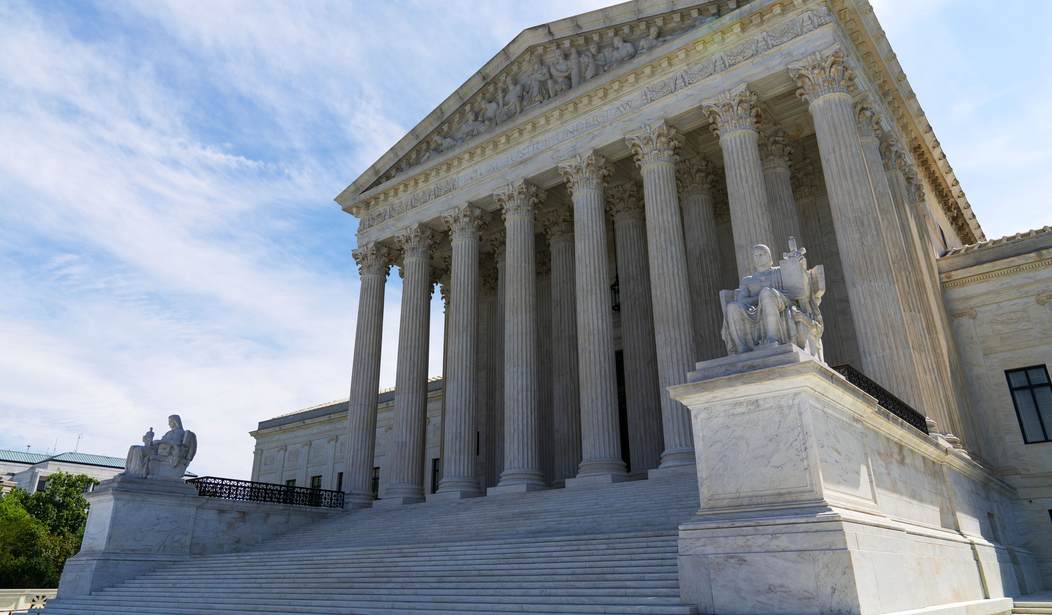


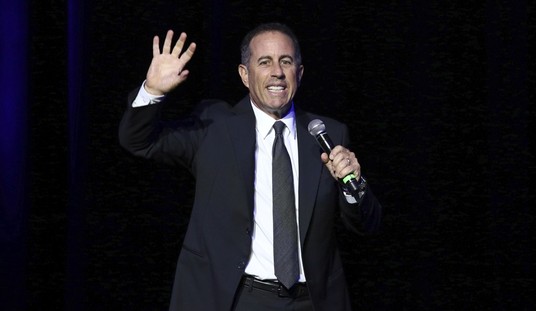
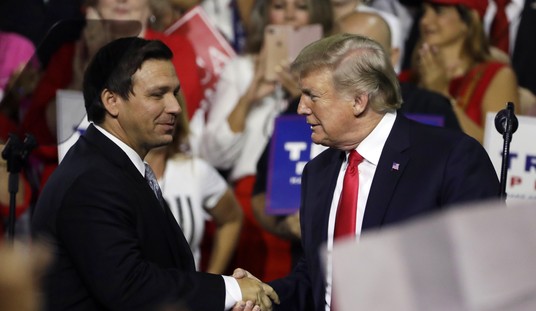


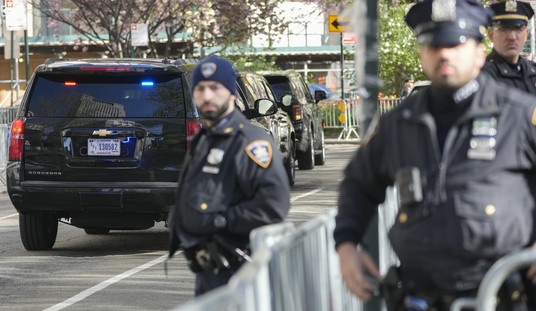

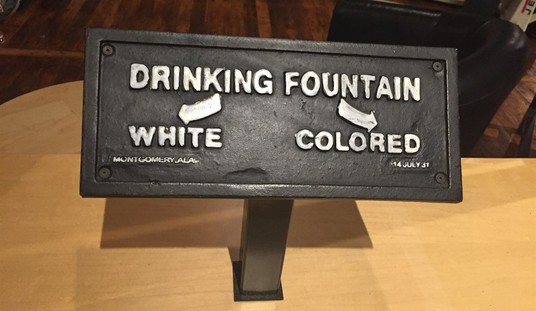



Join the conversation as a VIP Member